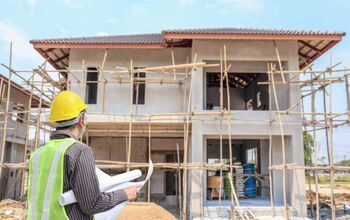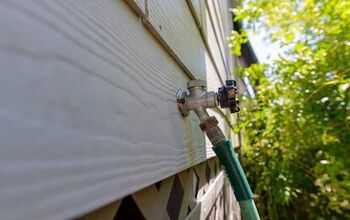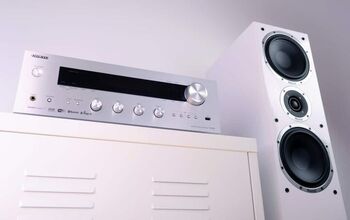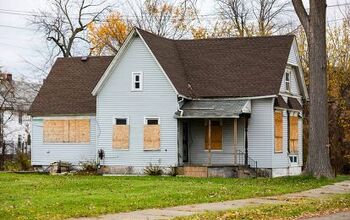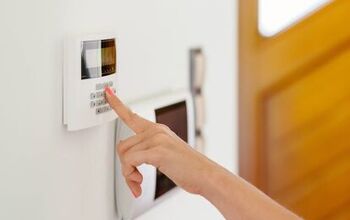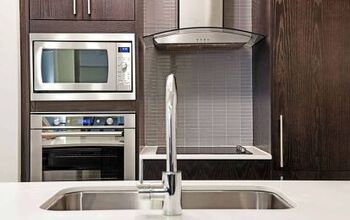Propane Regulator Vent Hole Leaking? (Here's What You Can Do)

If there’s one thing that you don’t want to deal with, it’s a leak in a system that features propane. Gas leaks are one of the most dangerous things that can happen to a home. Your propane regulator is one such place where a leak can cause a serious problem. If you notice that your regulator’s vent hole is hissing out some gas, you should be concerned. But, what should you do?
If you have reason to believe that your regulator vent hole is leaking propane, shut off your system immediately and get a new regulator. This is a clear indicator that your regulator has failed. Do not try to fix a failed regulator, as this is a clear fire hazard and can lead to serious health problems if it persists.
Like with many other things involving a gas line on a grill, a leaky regulator vent hole is a bad sign. Here’s what you need to know to keep safe…
What Does A Regulator Vent Do?
To get a good idea of what to expect with your regulator, you need to understand what it does. The propane regulator is there to help let the system “breathe” when there’s too much pressure. When the regulator releases pressure, a little bit of propane might come out of the system through the vent hole.
The regulator vent is there as a failsafe to prevent too much pressure in your system. If you notice a leak in your vent hole that constantly ekes out gas, you have a problem on your hand. So, maybe it’s time to make sure it’s a leak.
What Are The Warning Signs Of A Regulator Leak?
A regulator leak, or really any propane leak, is usually discovered by the smell of propane. Propane has been given a distinct odor with an additive primarily because of how much of a risk it can be. If you smell rotten eggs or a “gasoline” type of smell when you’re operating your propane setup, you might have a gas leak.
On a similar note, if you notice that your propane runs out faster than usual, you should consider looking for a leak. While it could be other issues, it often is linked to leakage.
When Is It Normal For Propane To Come Out Of Your Regulator Vent Hole?
Honestly, this really shouldn’t happen unless your propane system is highly pressurized. So, if you’re getting a whiff of propane when you open up the propane tank, that’s a bad look. It’s a sign that something isn’t working correctly with your regulator, and that something may have caused a leak!
Why Do Propane Regulators Fail?
Propane regulators can fail for a wide range of reasons. Most of the time, it’s just a matter of wear and tear. However, it can be caused by other issues. Unusually high pressures, as well as corrosion from exposure to water or salty air, can also cause a need for a replacement.
While helping your gas grill avoid water should be simple, most other causes of a regulator failure aren’t quite preventable. So if yours failed, don’t be too upset.
How Much Does It Cost To Replace A Propane Regulator?
If you were worried about breaking the bank for a new regulator, don’t be. Propane regulators are pretty cheap for the most part. Propane grill regulators cost between $10 to $20 a pop. If you need a home propane regulator, you will need to spend between $40 to $70, depending on the propane setup you have.
When Should You Call A Professional?
Since this is a matter that can blow up in your face (literally), you are never in the wrong if you want to reach out to a professional. However, there are some signs that this is way more serious than a small leak. If any of the following is true, call someone immediately:
- You smell propane in your home or yard, even when the propane has been shut off. This is a sign of a major gas leak. You need to get out of your home and call 911.
- The leak isn’t from the regulator but there’s a strong stench of propane in and around your area. This could be a leaky propane tank or a busted hose. If you can’t figure out where the leak is coming from using a soapy water method, you should call a propane professional.
- There is a clause in your propane provision contract that requires you to have any issues with your tank or gas line serviced professionally. This usually happens with home regulators, but once in a blue moon, it can also happen with gas grills.
How To Spot A Leak At Your Regulator Vent Hole
If you aren’t 100% sure whether or not you have a leak at the regulator vent, it’s time to make sure you’re panicking over a real issue.
Here’s how to check the issue:
- Grab some dish soap and water. You also should grab a bowl or a cup.
- Drop some dish soap into the cup, and add the water. Mix enough dish soap to create a solution that feels slippery, as if you’re going to make a solution for your kids to blow bubbles with.
- Apply the solution over the regulator vent hole. If you notice it bubbling up, you’ve located the source of the leak. On the other hand, if you don’t see any bubbling despite smelling propane, you might have a leak elsewhere.
Why Can’t You Fix A Propane Regulator?
There are several reasons why propane regulators aren’t fixable. Almost all of the reasons why you shouldn’t attempt a repair on a regulator have to deal with safety. Don’t believe it? Take a look at these important reasons below:
- If you were to try to fix your regulator, then you would have to do a lot of work. Actually repairing one would take extensive knowledge of propane regulators. Most of us do not have that, and that’s okay. Sometimes, it’s better not to try to fix things.
- If you try to fix your regulator and don’t do it correctly, it could result in a deadly fire. Propane is highly flammable. One bad fix and a flame later, and you could easily cause your entire system to blow.
- Propane systems are also highly regulated by local building codes as well as the propane providers themselves. Depending on your situation, trying to fix the regulator could cause you to get fined or even get your propane contract ended.
- Did we mention that gas leaks can be lethal, even if no fire is present? Propane inhalation can cause headaches, listlessness, delirium, and suffocation in large quantities.
How Do You Get A Replacement Propane Regulator?
There’s some pretty good news about replacing your propane regulator: you can do it yourself. To do this, shut off the propane line, remove the regulator from your grill and then bring it to your local hardware store. Ask for a new one of the same type. Bring it home, then place it on your grill in the location that your former regulator was.
You can remove the old regulator and tighten the new one using a wrench. Propane grill regulators can be screwed/twisted on, so it’s a simple fix that should only take five minutes or so. If you have a regulator as a part of your home or RV, it’s best to call a propane professional or read up on an owner’s manual to install it properly.
Related Questions
Are propane regulators universal?
Contrary to popular belief, propane regulators are not universal. They are, in fact, very subtly different from one another. To make sure that you get the right regulator for your setup, it’s best to either remove the regulator or take a photo of it when you go to the store to get a new one.If that isn’t doable, then you should read up on your grill’s owner’s manual to find out which regulator is right for you. Should a manual not be available, ask a hardware salesperson or a professional propane worker for help.
How do I know if a gas regulator is bad?
Aside from having a leak, there are other warning signs that it’s time to get a new regulator. The most common ones include hearing a hissing noise, noticing a low-temperature flame, having a flame output that doesn’t match the fuel, and having proof of excessive corrosion. If you notice flames spewing out of the burner or high levels of soot around the regulator, it’s beyond bad and needs to be replaced ASAP.
How long do propane regulators last?
Propane regulators are sturdy, but they aren’t too sturdy. With proper maintenance and optimal storage conditions, a typical propane regulator will last for approximately 10 years. Many, however, will work for up to five years as a result of less-than-ideal environmental factors. Of course, some regulators fail as a result of wear and tear due to frequent use.While it’s good to assume you will get 10 years out of a regulator, it’s also fine to stay on the safe side and assume it’ll be seven or less.
Related Guides

Ossiana Tepfenhart is an expert writer, focusing on interior design and general home tips. Writing is her life, and it's what she does best. Her interests include art and real estate investments.
More by Ossiana Tepfenhart



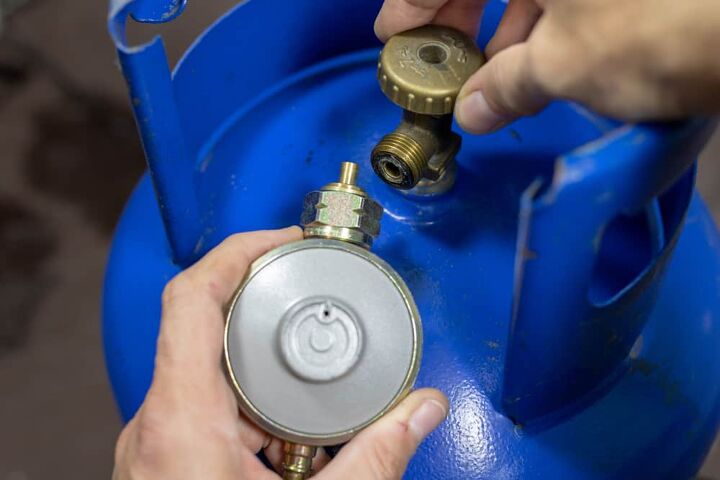










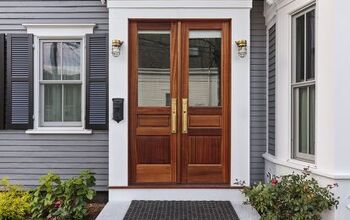
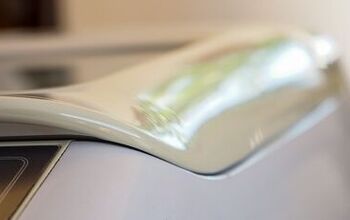
![10 Most Dangerous Neighborhoods in Baltimore [Updated]](https://cdn-fastly.upgradedhome.com/media/2023/07/31/9075655/10-most-dangerous-neighborhoods-in-baltimore-updated.jpg?size=350x220)


